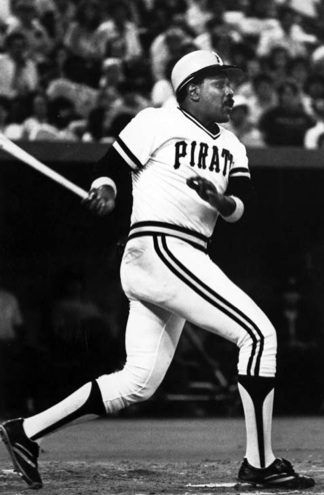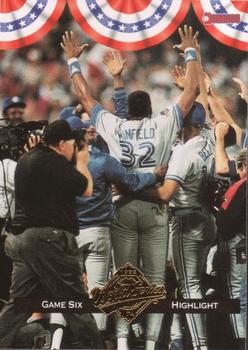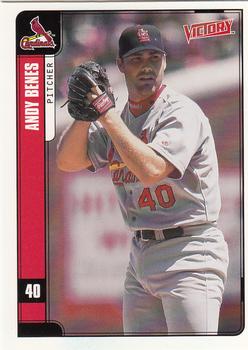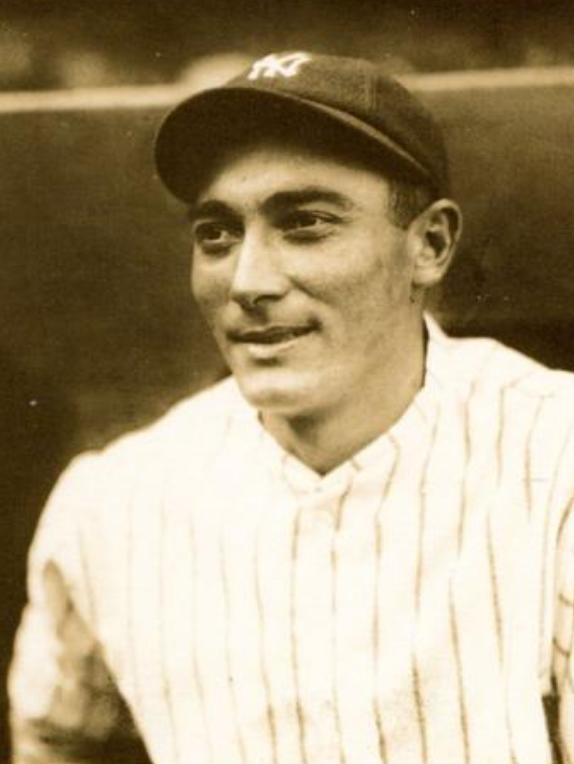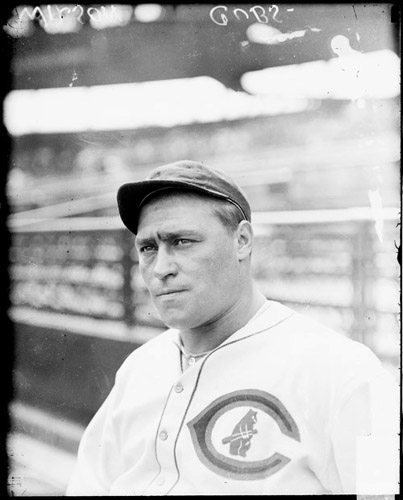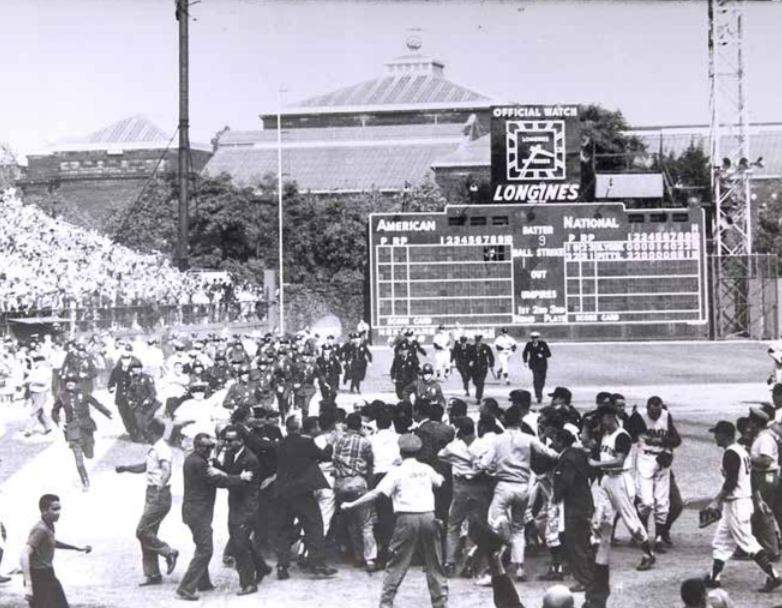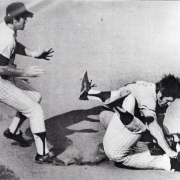October 4, 1969: Orioles win first-ever ALCS game
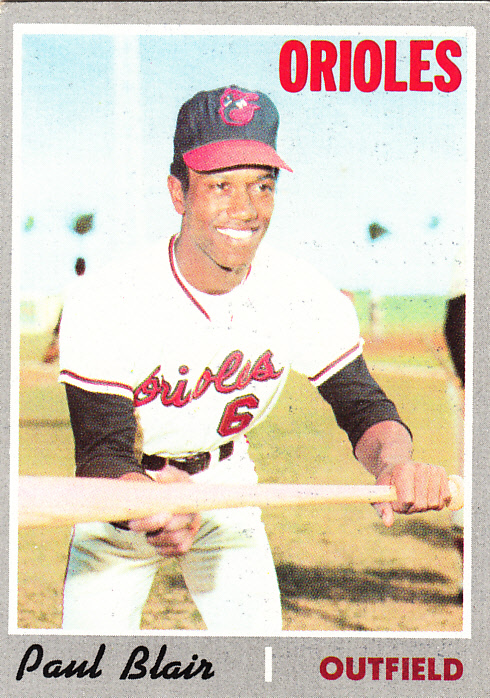
On October 4, 1969, nearly 40,000 fans filed into Memorial Stadium in Baltimore for the first-ever American League Championship Series. Beginning in 1969 the American and National Leagues were separated into two divisions, East and West. At the end of the season, each division winner would square off in a best-of-five series to decide who went to the World Series.
The Baltimore Orioles (109-53) had taken over first place in the newly formed American League East on April 16, 1969. The high-flying Birds stayed in the top spot for the remainder of the season, running away with the division by 19 games. The Minnesota Twins (97-65), under new manager Billy Martin, finished nine games in front of the second-place Oakland A’s in the American League West.
O’s manager Earl Weaver started lefty Mike Cuellar (23-11) in Game One while Twins skipper Billy Martin countered with right-hander Jim Perry (20-6). Both pitchers led their teams in wins with Cuellar being named co-winner of the American League Cy Young Award with Tigers pitcher Denny McLain.
Cuellar and Perry each allowed one hit while tossing goose eggs in the first three frames. After the Twins failed to score in the top of the fourth, the Orioles’ Frank Robinson broke the ice with a scorching line drive off the left field foul pole for a solo home run. The Twins evened the score in the fifth after Tony Oliva lashed a double to right and went to third on Frank Robinson’s error. Oliva then scored on Bob Allison’s sacrifice line drive to left.
The Orioles regained the lead in the bottom of the fifth thanks to light-hitting shortstop Mark Belanger’s two-out solo home run that bounced off the auxiliary scoreboard in left field. Belanger, who hit a career-high .287 in 1969, connected on a 2-0 pitch for his first round-tripper since going deep against the Tigers’ Denny McLain on April 23. When asked about Belanger’s blast after the game, Twins manager Martin told Jim Elliot of the Baltimore Sun, “If we walk Belanger it doesn’t hurt us with two out and the pitcher up.” When asked by another reporter what he’d do to a pitcher who grooved one to the number eight hitter in that situation Martin joked, “We usually shoot them.” 1
Minnesota jumped ahead in the top of the seventh. Cuellar walked Harmon Killebrew and then hung a curveball that Tony Oliva belted over the right-center field fence for a two-run homer.
In the top of the ninth southpaw Pete Richert relieved Cuellar, with the Orioles still trailing, 3-2. Richert issued two walks, one intentional, before working his way out of trouble. Twins pitcher Jim Perry took the mound to start off the bottom of the ninth. Perry had already given up two homers in the game, despite having been stingy with the long ball all season, allowing one home run for every 14 innings pitched.
The Baltimore faithful didn’t have to wait long for something to cheer about as Boog Powell led off with a towering 400-foot blast that soared high over the fence in right-center field. With the game now tied, Martin called on his bullpen ace, lefty Ron Perranoski (9-10, 31 saves) to stop the Birds’ rally.
The next batter, Brooks Robinson, greeted Perranoski with a single that Twins left fielder Ted Uhlaender, who had just entered the game as a defensive replacement, misplayed into a double. Curt Motton, pinch-hitting for Elrod Hendricks, lifted a shallow fly ball down the foul line behind first base that second baseman Rod Carew dropped for an error. Robinson, holding the bag at second, was unable to advance. After Davey Johnson popped out, Belanger hit a groundball that forced Motton at second, Robinson moving to third on the play.
With two outs and runners on the corners, Orioles manager Earl Weaver sent Merv Rettenmund in to pinch-hit for Richert. Hoping to catch Minnesota off-guard, Weaver called for a double steal to send home the winning run. Unfortunately for the Birds, Perranoski read the play perfectly, tossing the ball to catcher George Mitterwald, who threw to Killebrew at third for the tag out on Robinson. Weaver had pulled off the same play successfully earlier in the season against Oakland’s Vida Blue. Speaking about the ill-fated steal attempt, Brooks Robinson told the press, “Perranoski was just too smart for us. He just threw to the plate.” 2
Right-hander Eddie Watt relieved Richert in the 10th while Perranoski stayed in the game for the Twins. Neither team scored in the next two innings although Baltimore threatened in their half of the 11th, leaving two men stranded on the bases.
Birds manager Weaver brought in southpaw Marcelino Lopez to start the 12th inning. After a walk to Killebrew and an Oliva fly out, Ted Uhlaender singled. Lopez then uncorked a wild pitch in the dirt that allowed both runners to advance. With first base open Weaver ordered Lopez to intentionally walk Rich Reese and brought in from the bullpen Dick Hall, a 39-year-old pitcher who had been an infielder/outfielder early in his big-league career.
The next hitter, Leo Cardenas, attempted a safety squeeze with one strike, but he fouled Hall’s offering back to the screen. Cardenas struck out on the next pitch. John Roseboro, pinch-hitting for Mitterwald, flew out to end the inning. “Cardenas committed himself a split second too soon,” Hall said after the game about the unsuccessful bunt attempt. “He turned just before I was about to release the ball, and then I threw the ball up around his eyes.” 3
Belanger led off the bottom of the 12th with a hard ground ball that glanced off third baseman Harmon Killebrew’s glove into left field, the official scorer ruling it a hit. It was a tough chance for Killebrew, who was playing third instead of his usual first base position. Martin made the switch in order to get hot-hitting Rich Reese’s bat in the Twins’ lineup against the lefty Cuellar.
The next batter, Andy Etchebarren, laid down a sacrifice bunt that moved Belanger over to second. Don Buford grounded out to shortstop Frank Quilici, Belanger taking third on the play. Up next was Orioles center fielder Paul Blair, who was 0-for-4 with a walk for the game and mired in a 4-for-44 slump. Blair took Perranoski’s first offering for a ball and then took a mighty hack at the second pitch from the Twins reliever, fanning the air. On the next pitch, Blair surprised nearly everyone in the ballpark by dropping a bunt down the third-base line. The ball rolled about 30 feet and stopped in front of a charging Perranoski and Roseboro. Belanger, attuned to Blair’s impromptu move, got a great jump from third and raced home with the winning run before Roseboro got a handle on the ball. When asked about the play in a post-game interview Belanger told the press, “Any time Blair or Don Buford are at bat, I’m alert for that play.”4
Oriole third-base coach Billy Hunter was also thinking bunt, telling Belanger when he got to third, “Be alive, Paul’s liable to lay it down.” 5
A jubilant Blair speaking to the media in the Orioles clubhouse said, “I decided to do it in the on-deck circle. I figured I would try to drive him in first by swinging away. I haven’t been hitting much and I went to the plate thinking about a bunt. I wanted to take one swing, though, with Mark on third. I figured Perranoski would throw me an off-speed pitch at that point, and that is the best kind to bunt. I think it was a screwball.” 6
Perranoski observed, “We couldn’t do anything with it — it was a perfect bunt. With his speed and a man on third, our only hope is if he bunts it foul or we can make a play on it. If Blair thinks that was an off-speed pitch he is wrong. Maybe it looked off-speed because I was running out of gas.” 7
Twins manager Billy Martin talked with reporters in the visitors clubhouse, saying, “The bunt was perfect, it was a good play — nothing at all wrong with it even if it didn’t work — great bunt, and if you don’t think we anticipated it look at our scouting reports. We are aware Blair’s capable of doing it.” 8
Lost in the excitement was Brooks Robinson’s four-hit day along with Mike Cuellar’s three-hit pitching effort. Oriole catcher Elrod Hendricks spoke glowingly after the game about Cuellar’s solid performance: “Mike was pitching great ball. He made only three bad pitches all day. He got away with one of them, but Oliva hurt him with the other two. One was a high screwgie that didn’t do anything and the other was a hanging curve.” 9
Billy Martin summed up the tough loss, telling a sportswriter, “There’s no way to beat a perfect bunt.” 10
Sources
1970 Orioles Media Guide
Newspapers and Magazines
Baltimore Sun.
Daytona Beach Morning Journal.
Eugene (Oregon) Register.
Florence (Alabama) Times Daily.
Michigan Daily-News.
Milwaukee Journal.
Reading Eagle.
Rome News-Tribune.
The Sporting News.
Author’s note
The author Jimmy Keenan attended this game with his grandfather, former Oriole Jimmy Lyston.
Notes
1 Jim Elliot,“Weak West Puts Up Fight,” Baltimore Sun, October 5, 1969 A1.
2 “Big Payoff For Orioles—Blair’s Bunt Was His Own Idea,” Daytona Beach Morning Journal October 5, 1969,.1C, 2C, 3C.
3 Ibid.
4 Ibid.
5 Jim Elliot,”Slump Prompted Bunt By Blair,” Baltimore Sun, October 5, 1969 A1, A14.
6 “Big Payoff For Orioles—Blair’s Bunt Was His Own Idea,” Daytona Beach Morning Journal October 5, 1969, 1C, 2C, 3C.
7 Jim Elliot,”Slump Prompted Bunt By Blair,” Baltimore Sun, October 5, 1969, A1, A14.
8 Ibid.
9 Bob Maisel, “Morning After,” Baltimore Sun, October 5, 1969, A1, A14.
10 “Bunt Beats Twins in 12th 4-3,” Reading Eagle, October 5, 1969, 59, 68.
Additional Stats
Baltimore Orioles 4
Minnesota Twins 3
12 innings
Game 1, ALCS
Memorial Stadium
Baltimore, MD
Box Score + PBP:
Corrections? Additions?
If you can help us improve this game story, contact us.


